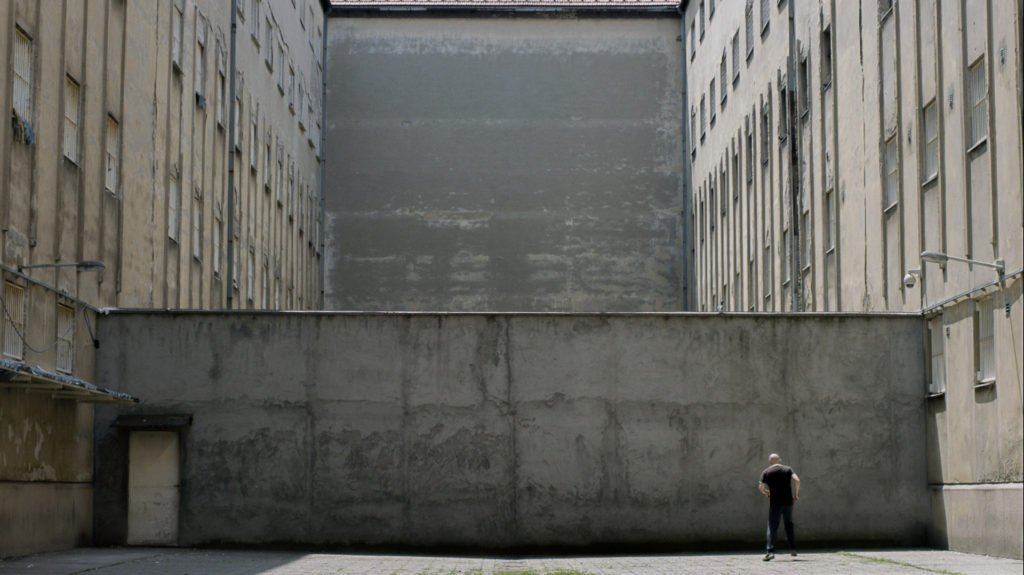Review: Twins Woven from Dreams (2020)

Judging by his films so far, the young Montenegrin filmmaker Sead Šabotić is an artist of a considerable talent, but his earlier works have been a bit hampered by the lack of communication between him and the audience. With Twins Woven from Dreams, a film he co-directed with the producer Lea Vahrušev, he made a huge step forward to become one of the poets of the post-Yugoslav cinema. This feature-length documentary premiered at the recently finished Beldocs.
Šabotić and Vahrušev follow a group of inmates in the Belgrade District Prison in their daily routines, while trying to penetrate into their most personal thoughts and fears. The prison trio are the cellmates Jovan, Marko and Nemanja, and each of them has his own story to tell, but they also have some things in common. They are all family people, their discharge dates are approaching, but so are their fears about the reintegration into society and meeting their families after they get out. Freedom is sometimes a heavy burden to bear…
The audiences tend to imagine prison life based on the works of fiction, pretty much all uniformed: there is a pressure from the outer ranks (the sadistic guards) and from within (the fellow inmates) accompanied by senseless violence. While it works as a template for Hollywood prison dramas, the reality (at least in the Continental Europe) is slightly different. There is a system and the inmates are more or less adjusted to it, they have their rights and obligations, but also the sense of that they are where they are. The hardships they have to endure are above violence and the abuse of authority. In its core, it’s all about the basic psychology: boredom and deprivation of the freedom of movement are the key issues, but also thoughts about the future put an extra pressure and expectations on their shoulders.
The poetic title Šabotić and Vahrušev opt for is a quote from the short story The Courtyardby written by Goran Petrović, published in his first book of stories. The complete passage about the dual nature of the reality inside and outside of prison walls (one is dream-like, the other more into real happenings) is shown as a large info-card in the introductory segment of the film, and it lays out the poetic path the filmmaking duo takes. They observe the inmates in moments of fun and banter which is presentes as camaraderie, but also in moments of the in-depth exchange of thoughts between each other, or confessions they make to their family members when they come to visit. While their prison life is depicted quite factually, it is not hard to imagine their lives on the outside before they got locked up and what awaits them once they get out, which might be even scarier than the time served in prison.
The observational style is predominant, but Šabotić and Vahrušev tend to break the routine with both on- and off-screen interviews from their three leading men, showing some considerable flexibility necessary to tell the story in the optimal way. There is also a trend to be noted in the cinematography style that usually consists of carefully composed shots by a fixed camera, only to be broken in the most emotional moments with the hand-held camera. Also, the relative absence of music (Jovan Vučur’s minimalistic drone that adds to the feeling of claustrophobia is being employed only occasionally) is highlighted in the film’s ending to the tunes of the anthemic rock song that expresses the feelings of hope from the filmmaking duo to their subjects.
As the viewers, we cannot do much, but to join that circle of hope. Sead Šabotić and Lea Vahrušev have done right for the guys in the prison and for the art of cinema with Twins Woven from Dreams.
Original
title: Blizanci satkani od sna
Year: 2020.
Runtime:
67’
Country: Serbia
Language:
Serbian
Directed by: Sead Šabotić, Lea Vahrušev
Written
by: Sead Šabotić
With: Jovan Sučević, Marko
Manić, Nemanja Mihailović
Cinematography by: Milan
Petković
Editing by: Mina Petrović
Music by:
Jovan Vučur
Sound design by: Antonio Andrić, Jovan
Vučur
Sound recording by: Dimitrije Dragojević. Boris
Mijatović
Colourist: Biljana
Ristivojčević-Bižić
Produced by: Lea
Vahrušev
Co-produced by: Stefan Orlandić, Ivan
Čojbašić
Production company: Faculty of the Dramatic
Arts (FDU) Belgrade
Co-production company: Living
Pictures
Supported by: Republic of Serbia – Ministry of
Justice, Belgrade County Jail, Film Centre of Serbia (FCS), Film
Centre of Montenegro (FCCG)
















